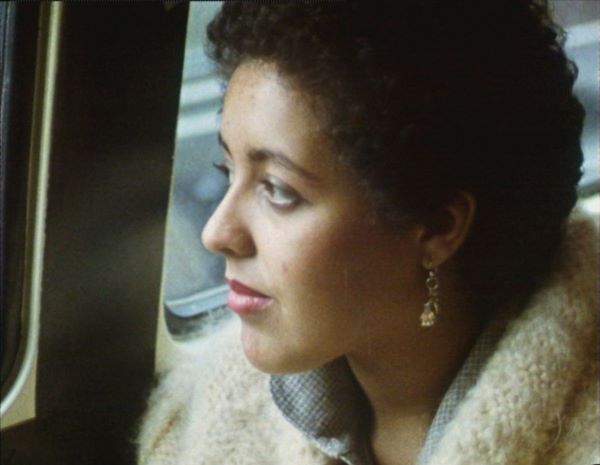Poly Styrene, a 19-year-old, braces wearing, fashion-forward punk rock supernova, fronted the band X-Ray Spex. Poly Styrene: I Am a Cliché is simultaneously a document of her time with the group and an examination by her daughter, Celeste Bell (who also co-directs with Paul Sng and narrates), of her sometimes fraught relationship with her mother.
In essence, there are two films. The section that focuses on Styrene is sharp and incisive. Full of commentary from peers, and particularly fellow female artists of color (Styrene’s mother was white, her father black), the film provides context of what it was like growing up biracial in 1970s London, and how the punk rock subculture might attract those who felt like outsiders. Rhoda Dakar, also a biracial singer, of the band Bodysnatchers, states punk was “full of people no one else wanted.”
The punk movement in Britain also occurred at a time of great change and civil unrest, and where there is great change and civil unrest, there is generally overt racism. In the United Kingdom, that came in the form of the National Front, which was a rising white nationalist group. Meanwhile, punk rockers were obsessed with reggae and ska, so Styrene found cohorts such as Pauline Black of the Selector and musician/filmmaker Don Letts.
Unfortunately, boys will still be boys, and Styrene found herself locked in a pantry for an hour by Sid Vicious in Johnny Rotten’s flat after being told it was a bathroom. This and a trip to New York and exposure to its darker, drug-fueled punk scene seemed to have shaken her and exacerbated some latent mental health issues. All of this is fascinating stuff and Styrene was a fascinating personality—there’s also plenty of footage of her in interviews and performing,
While one senses the urgency of the early punk footage, Bell’s footage is serene. She is usually sitting cross-legged, casually flipping through a book she co-authored about her mother, who died in 2011. The camera moves slowly around her as her voice-over explains how it felt to have Styrene as a mother or what her thoughts are at the moment we are watching her. It feels contrived. Eventually, there is conflict between her and her mom. After living with Styrene in a Hare Krishna enclave, Bell was sent to live with her grandmother as she was being clearly neglected.
Bell has since reconciled her justifiable feelings of anger toward her mother. However, there is a clearly engineered emotional distance in her narration. While it’s interesting to contrast that approach to art with her mother’s more direct stance, it is not compelling enough to justify all of the footage of Celeste retracing her mother’s steps through important locations in Styrene’s life. Since Bell really isn’t particularly invested in deeply delving into her feelings, neither are we. Her inserting herself into the narrative also slows down the film’s momentum.
So, you simultaneously get a compelling portrait of a young woman ahead of her time in a volatile era and a monotonous, overly polished account of a daughter at peace. One is roiling in revelation and emotion, the other one eyes everything from a safe remove.

















Leave A Comment